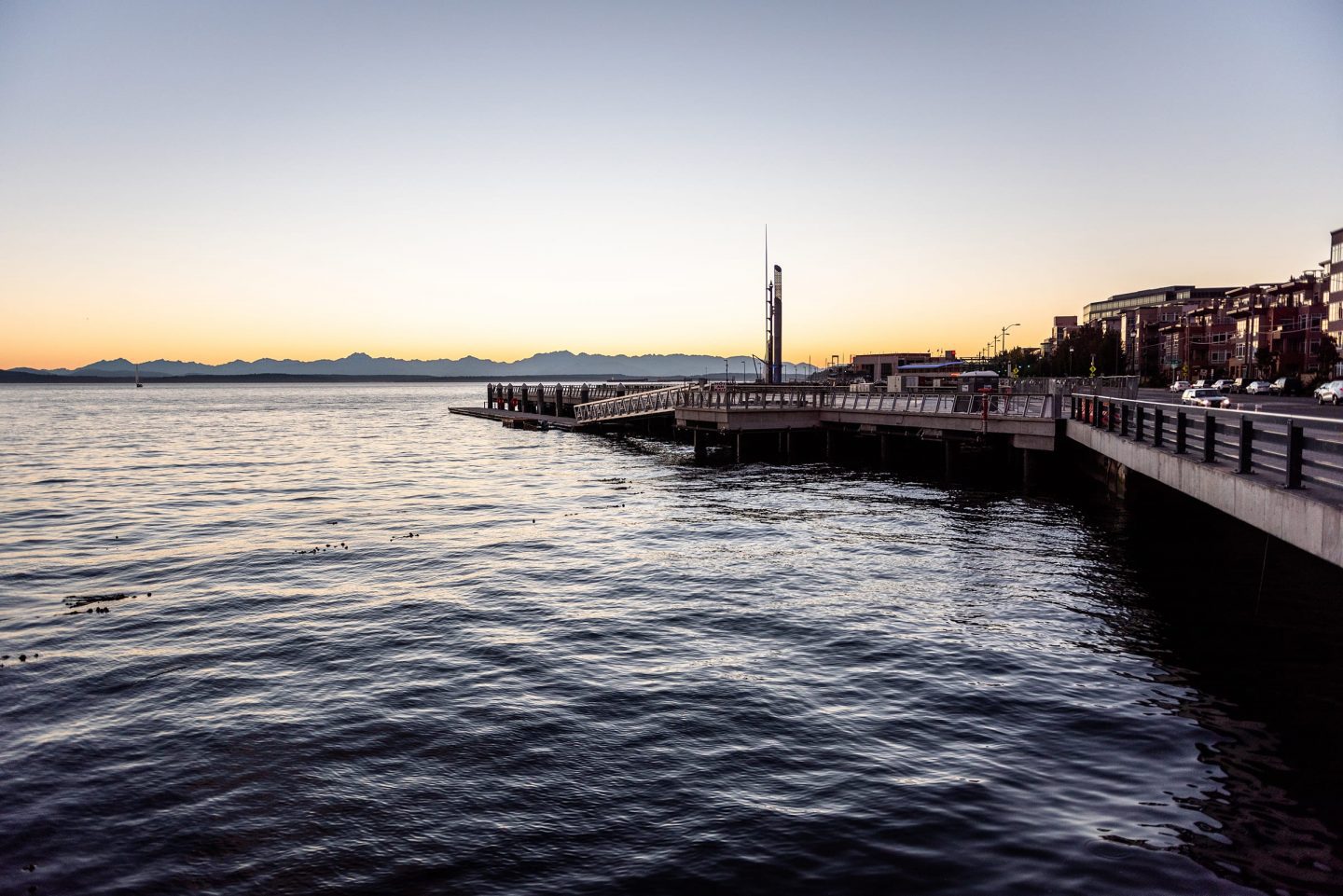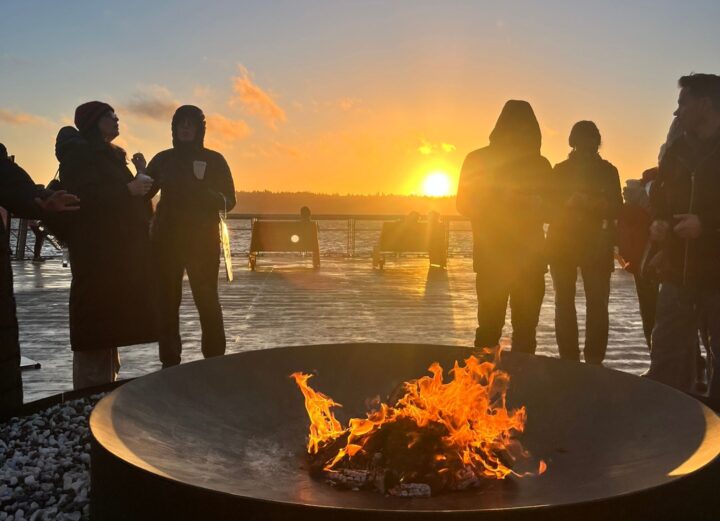Salmon Underfoot: Seattle’s Salmon‑Friendly Seawall
Pier 62 | Free
Wednesday August 11, 2021, 10–11 am
This event has passed
Discussion led by Bob Oxborrow, Aquatic Ecologist with the University of Washington School of Aquatic and Fishery Sciences
See marine science in action and learn how the new seawall along the Seattle waterfront is helping young salmon during their shoreline migration. Following a 30-minute presentation, participants can chat with University of Washington marine biologists and learn how they use snorkels, kayaks, and SCUBA to study the seawall’s impact on juvenile salmon.
This class will be held outdoors and on a floating dock, which can move suddenly due to waves. Children must be accompanied by an adult.
Program Date: Wednesday, August 11
Location: Pier 62
Class recommended for: All ages
Talk and Q&A: 1 hour
Price: Free
MEET AQUATIC ECOLOGIST: BOB OXBORROW
Bob Oxborrow is an Aquatic Ecologist whose work focuses on what happens when shorelines are degraded by human activity and their restoration. He is a graduate student at University of Washington’s School of Aquatic and Fishery Sciences working with the Wetland Ecosystem Team. Bob received a BS in Biology with a minor in Marine Biology at the University of Washington.
His graduate research utilizes invertebrate taxonomy to study the value of an eco-engineered seawall designed to benefit migrating juvenile salmon at the newly constructed seawall. He is also interested in the impacts of climate change on biodiversity and how scientific research translates to policy.
Bob’s research is supported by fellow scientists in the Wetland Ecosystem Team including Jeff Cordell, Jason Toft, Kerry Accola, Mike Caputo, Juhi LaFuente, Arielle Tonus Ellis, Cormac Toler-Scott, and Julia Kobelt.
Created in partnership with the University of Washington School of Aquatic and Fishery Sciences
Founded in 1919, the University of Washington’s School of Aquatic and Fishery Sciences (SAFS) is dedicated to sustaining healthy marine and freshwater environments. As recognized leaders in aquatic biology, sustainable fisheries management, aquatic resource conservation, and resource management, its faculty conducts innovative research from the organism to the ecosystem scale. SAFS faculty studies natural systems and diverse species, and presents solutions to foster the sustainable use of aquatic resources.




